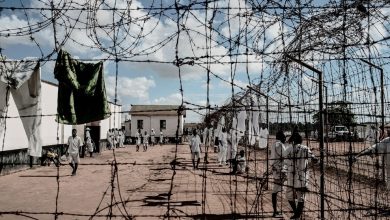Bail pending appeal, a real thorn
The Malawi Supreme Court of Appeal on Wednesday reserved its ruling on an application by convicted former minister of Homeland Security Uladi Mussa to be released on bail pending hearing and determination of his appeal. Mussa was convicted over fraud in the issuance of passports at the Department of Immigration and Citizenship Services.
The question of getting bail pending appeal has raised eyebrows in some quarters of society, as it is seen as a way for the rich and affluent to escape imprisonment, even where they are convicted.
Basically, those raising eyebrows are doing so because in the past, certain well-known people in society were given bail pending society and walked out of prisons. Some have been on such appeal for years on end.
This as it may be, there are numerous people in the country’s prisons who have been on remand for ages, without a trial at all. At some point, some murder suspect spent 21 years on remand! Twenty-one solid years in prison without being given the chance to prove your innocence before the court is not a joke.
Mussa’s lawyers, among other things, argue that they want their client out on bail because of the lack of a quorum to hear the appeal case.
There is the problem! Delays in hearing cases with bottlenecks emanating from other parties than the appellant are reason enough for bail to be granted. Or is there an option that a convict can be on remand pending appeal?
You are more apt to get an obscure answer to the question of whether bail is a constitutional right or a privilege in Malawi. To get bail, mostly, it entails that you have legal representation. That reads, typically, you have money. That is why some people with petty crimes are on remand for ages as they cannot afford a lawyer.
If they are lucky, some are saved with representation from the Legal Aid Bureau, which is very much handicapped due to lack of finances as well as personnel. Even harder is the fact that the battle is still on for the bureau’s paralegals to be allowed to represent the less-priviledged in lower courts.
The poor on remand in prison, unlike the incarcerated convicted affluent, have to wait for the Bail Project when there is funding while the rich can afford a pool of top-notch lawyers to argue their cases, including a bail pending appeal. That appeal will only be heard when the courts are set for such an appeal.
The good news is that in the past three months some 400 prisoners were released in concerted efforts to congest the prisons.
So, bail pending appeal will remain a thorn in the flesh unless the bottlenecks in the judiciary, among other things, are ironed out. In fact, bail in Malawi sounds more or less like an acquittal!
The question of delays in the judiciary have been long running. Not so long the Malawi Law Society (MLS) said it has compiled a list of judges who have a heavy load of cases in their ‘In’ and ‘Pending’ trays. Just a handful are in the ‘Out’ tray.
In fact, MLS claims there are some three judges who have the highest backload of cases in their offices.
It is only proper that this issue has been raised by our learned friends since we lay people have been wondering why the delays in cases we follow religiously have stalled over the years. Where, for instance, is the albino killing case involving a priest, a police officer, a medical personnel and other professionals? Indeed, where is this case where High Court judge Zione Ntaba recused herself because her uncle Hetherwick Ntaba was mentioned somewhere in the case.
While we may reckon there are financial hustles in the Judiciary, speed in dispensing justice is vital. It must be legal minds that came up with the maxim that ‘justice delayed is justice denied’.
While we are at it, there has been a proposal that judicial officers must be paid in dollars. The argument is that this is in line with a provision that their emoluments must not dwindle.
Now, why should only the judiciary enjoy the payment in dollar affair? If the issue has been in the books all these years, why has it taken the Judiciary so long to fight for its implementation?
It is a given fact that the cost of living has risen and it will continue to rise due to, among other things, the devaluation of the kwacha. Now, once the judiciary emoluments are pegged to the dollar will the rest of the Malawi workers sit back and watch?



One Comment